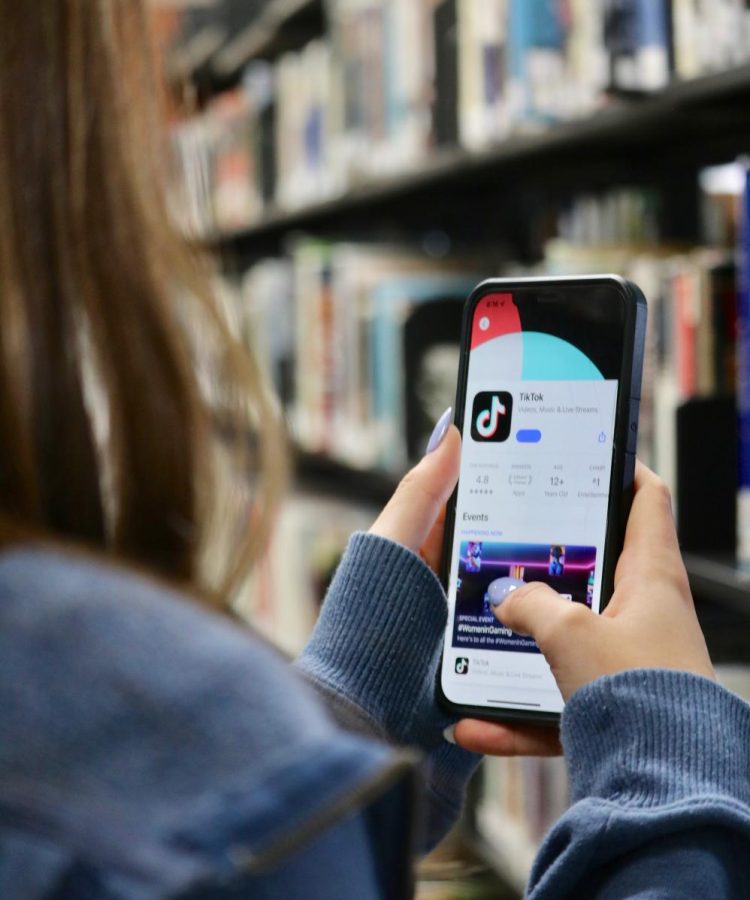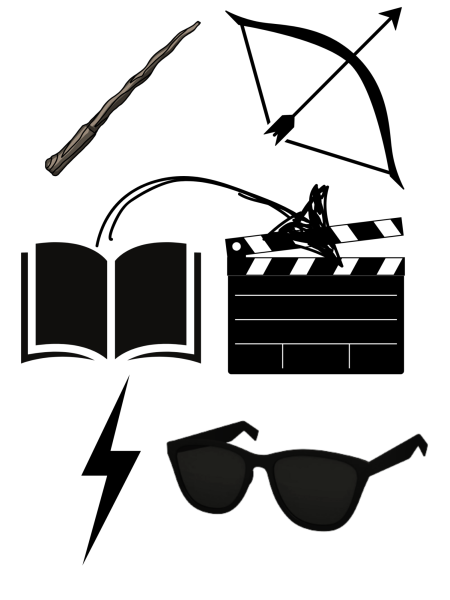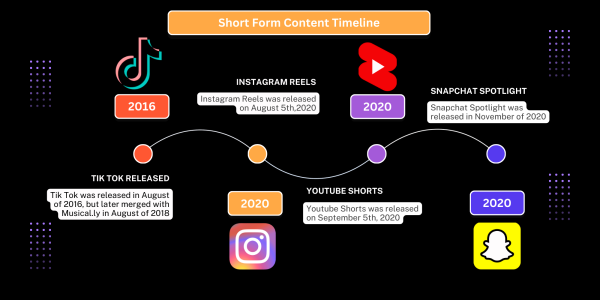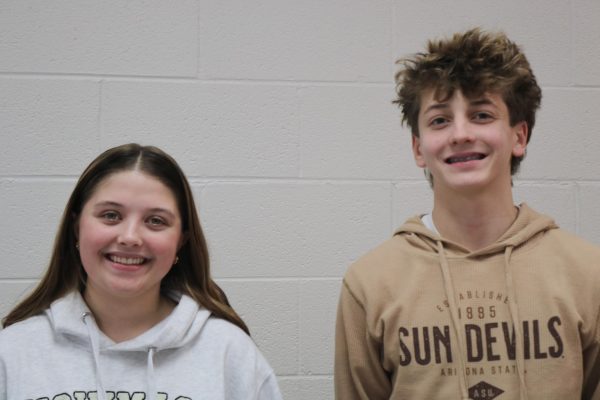Tiktok Takeover
Music is considered an essential part of everyday life to promote mind growth. Tiktok, a music based video app has grown in popularity over the last few years due to its overwhelmingly positive response to aspiring artists.
What do Marina & The Diamonds, DaBaby, Doja Cat and Destiny’s Child all have in common? They all have TikTok songs, which means at least one of their songs has been heard, danced to and even misinterpreted on this app dominated by Gen-Z. Whether you like it or not, TikTok has a growing influence on the music industry.
TikTok music has created a ripple effect across various forms of music consumption. Songs can go viral on TikTok before they hit the radio or are even released. In October of 2021, singer-songwriter Emmy Meli released a short clip of a new song she’d been working on that quickly went viral with 34.2 million views (as of March 22).
The next day, she wrote a comment saying, “I was going to wait until December to release it but I have decided I’m going to be staying up all night.” “I AM WOMAN” was released one month later and Meli currently has 622.5k followers on TikTok. Meli is becoming part of a new category of artists using TikTok to replace radio virality.
Some students argue that TikTok is a force of good for the music industry. Senior Haley Sanchez, who plans on releasing music to TikTok in the future, sees the business benefits of marketing music on the app in hopes of going viral to jumpstart a career. “If you don’t post one thing, you could be holding back from a [viral] video,” Sanchez said. “Posting any song could be a hit or miss, so you might as well try and post it because you can make a ton of money from it.
Music analytics company MRC Data found that 67 percent of the app’s users are more likely to seek out songs on music streaming services after hearing them on TikTok. However, listeners agree that a little goes a long way when it comes to celebrities and influencers using music to boost their brand.
“I feel like they should not use music they’re trying to market] in every single video,” said junior Elaheh Shamloo. “It looks like they just want money. They don’t want to make it for people.”
Another benefit to the ever-growing world of TikTok music is its ability to resurface old songs and give new life to music that wasn’t as widely received when released as it is on TikTok. Take “Deceptacon” for example: its bouncy beat was listened to by a niche audience when Le Tigre released it in 1999, and who would have guessed twenty years later, it would be used to make internet strangers’ mini vlogs? Songs can blow up on the app, despite being out of the mainstream for decades.
Teenagers like Shamloo are turning back to artists such as Lady Gaga, Nicki Minaj and Nelly Furtado because TikTok makes them trendy again. “Stuff from old music that now is trending again, I love them. I download them or listen to Spotify.”
The pendulum of music is swinging back to the 90s, with bands and artists like Nirvana, Alanis Morisette and Notorious B.I.G. becoming popular on TikTok and with Gen Z. Back in February, three of the five featured Super Bowl artists were popular 90s music icons. The pop culture world is catching the nostalgia fever too, such as when the new movie The Batman featured Nirvana’s 1991 song “Something In The Way,” which subsequently caused a 1200 percent increase in Spotify streams of the song.
Songs are being introduced to an entire new generation that was in diapers when they were released. Young people don’t just listen to old songs, they dance to them, remix them, use them in edits of their favorite characters – the possibilities are endless.
For example, the UK based band Sohodolls hasn’t reached the charts since 2006, yet their song “Bang Bang Bang Bang” struck a hord with TikTok users around late 2020. After this revival, the band remastered two of their most popular TikTok songs in 2020 and 2021. Despite being inactive for six years, Sohodolls remixes are getting hundreds of thousands of plays on Soundcloud, tens of thousands of views on TikTok, and 76 million original and remastered combined plays on Spotify. Not too shabby.
Despite the positives, TikTok exposure can have a dark side. The extreme virality of songs today could be ruining the experience for some listeners. A song is great one, two, maybe five times, but not 319.6k times (the current official sound for “Heather” by Conan Gray on TikTok).
Senior Hazle Purvis explains how “Heather” by Conan Gray was her favorite song until TikTok users took it over. “I remember the night that album came out. I remember listening to that and texting all my friends and saying, ‘this song is so good,’” she recounts. “I think it was three months later and it was on TikTok and I then thought I can’t listen to this song anymore.”
TikTok exposure can sometimes feel like a betrayal to long-time fans who were there long before TikTokers. Purvis shares how when she stumbles upon a song by the band The Neighborhood, “it just hurts me a little bit.”
“I had a special, emotional attachment to Baby Came Home 2/Valentines,” Purvis says. “Once it became a trendy TikTok song, it was no longer unique and because I heard it often, its meaning almost lessened.”
TikTokers have found a somewhat controversial solution to the “my favorite song went viral on TikTok and now I hate it” dilemma: gatekeeping. Gatekeeping refers to the act of keeping something hidden to keep it unique to yourself, such as a song or clothing brand. TikTokers use it as a way to keep songs from going viral and losing their meaning among the chaotic world of TikTok, but it’s created a rift in the internet community. Some users see the merit in it, but others see the negative affects.
“If something’s being gate kept from me, I’m like ‘that’s bad, gatekeeping is bad,’ but when it’s something I really like, I’m pro-gatekeeping,” Purvis explains. “I think it’s kind of that way with everyone.” However, others are strongly against this practice.
“I think it’s kind of selfish, knowing something and not sharing it instead of letting other people enjoy it,” Sanchez says. “If you don’t want others to experience the joy that you got from it…it’s very selfish.”
Gatekeeping isn’t foolproof, as users can always comment on a video the source of something being gatekept, but it does make things a bit more difficult.
Shamloo adds, “If you make a TikTok with [a gatekept song], you’re not going to get a lot of likes and comments because it’s not a trend.”
TikTok songs can often be used in the background of a video, in a makeup tutorial, photo dump or a mini vlog, so songs layered with meaning become cut down to one line or misinterpreted when they become a trend.
The 2010 song “I Am Not A Robot” by Marina & The Diamonds is a pop song about emotional vulnerability and letting go of perfectionism, but on TikTok, the intro bears a striking resemblance to a Michael Jackson-style high note. TikTokers used the song to transform themselves with makeup into the late singer for a brief trend, missing the deeper meaning of a powerful song.
More recently, “Pope Is A Rockstar” is a 2016 song with 2.7 million videos on TikTok. However, many users mistook the lyrics for “go little rockstar.” But as they say, all press is good press.
With the ability to make songs go viral before they are even released, TikTok is creating change in the music industry for new and old artists alike. With the persuasive powers of social media, artists can connect with potential fans faster than ever before. As music production and marketing continue to become more accessible (posting a TikTok is free, after all), anyone can create the next big TikTok song.








